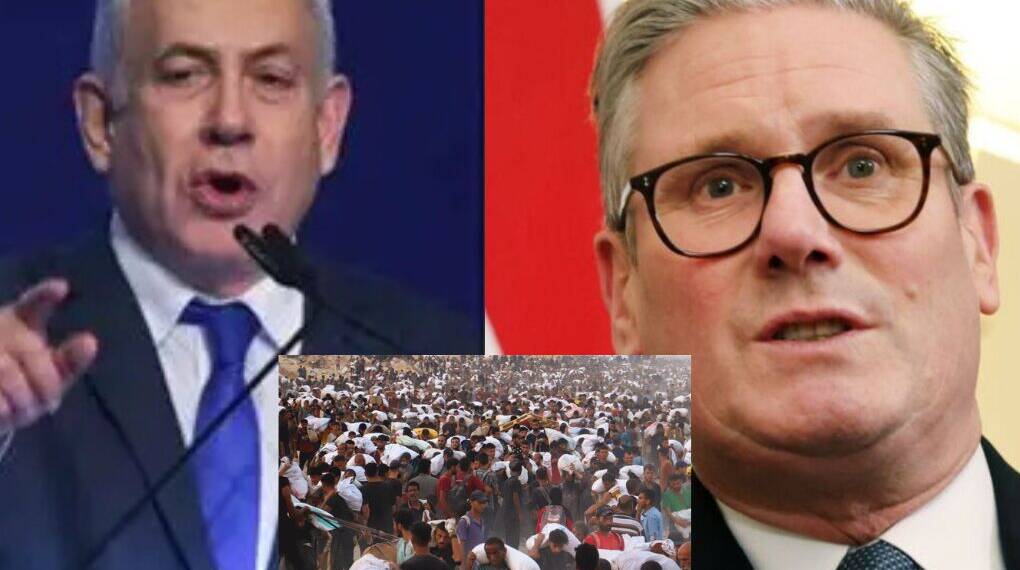In a landmark shift in British foreign policy, Prime Minister Keir Starmer announced Tuesday that the United Kingdom will formally recognize the state of Palestine at the United Nations General Assembly in September — unless Israel agrees to a ceasefire and takes concrete steps toward a two-state solution.
“Today, as part of this process towards peace, I can confirm the UK will recognize the state of Palestine by the United Nations General Assembly in September, unless the Israeli government takes substantive steps to end the appalling situation in Gaza,” Starmer declared at a news conference in London. “This includes agreeing to a ceasefire, allowing humanitarian aid to enter Gaza, and making clear there will be no annexations in the West Bank.”
This move puts the UK in line with France, which announced last week that it would recognize Palestine as a state, citing escalating humanitarian catastrophe in Gaza and the stagnation of peace efforts.
Starmer’s Conditions for Israel
Starmer listed three key demands Israel must meet to avoid British recognition of Palestine:
An immediate ceasefire in Gaza
A commitment to a long-term peace process aimed at a two-state solution
Unhindered humanitarian aid access and a halt to annexation efforts
Additionally, Starmer warned Hamas to disarm, release all hostages, and withdraw from any future role in governing Gaza.
“There is no equivalence between Israel and Hamas,” he added. “But our recognition of Palestinian statehood cannot wait indefinitely while people are starving.”
Israeli Reaction: Fierce Rejection
The Israeli government swiftly condemned the UK’s statement. Prime Minister Benjamin Netanyahu accused Starmer of rewarding terrorism.
“Starmer rewards Hamas’s monstrous terrorism and punishes its victims,” Netanyahu said. “A jihadist state on Israel’s border TODAY will threaten Britain TOMORROW. Appeasement towards jihadist terrorists always fails. It will fail you, too. It will not happen.”
Israel’s Foreign Ministry echoed the sentiment, describing Britain’s shift as a “reward for Hamas” that undermines ceasefire efforts.
The backlash comes amid reports that Netanyahu is considering annexing parts of Gaza if ceasefire talks remain stalled — a move that would drastically escalate regional tensions.
U.S. and France Split on the Issue
While France hailed the UK’s decision as part of “a pivotal moment for peace,” the United States criticized it.
U.S. Secretary of State Marco Rubio rejected the recognition plan, calling it “reckless” and harmful to peace negotiations. “This is a slap in the face to the victims of October 7th,” Rubio wrote.
However, President Donald Trump, during a meeting with Starmer in Scotland this week, sidestepped the issue. “I don’t mind him taking a position,” Trump said. “I’m looking for getting people fed right now — that’s the number one position.”
Growing Pressure for Change
Starmer’s shift reflects growing pressure from within his Labour Party and the international community, amid worsening humanitarian conditions in Gaza. Over 60,000 Palestinians have been killed since the war began in October 2023, according to Gaza’s Health Ministry. An additional 145,000 have been injured.
A report released this week by the Integrated Food Security Phase Classification (IPC) warned that “the worst-case scenario of famine is playing out in the Gaza Strip.”
Despite Israeli denials of a starvation policy, the UK and several international agencies say aid access remains severely restricted. USAID assessments have cast doubt on Israel’s claims that Hamas is stealing large quantities of humanitarian supplies.
Broader Diplomatic Impact
The UK’s move may pressure other Western allies to follow suit. Ireland, Norway, and Spain recognized Palestine last year. Now, attention turns to countries like Germany, Canada, Japan, and Australia, which have traditionally avoided unilateral recognition.
Germany has said it will not recognize Palestine in the short term, insisting progress must be made first. Italy, meanwhile, conditioned any recognition on mutual recognition between the states.
About 144 of the UN’s 193 member states already recognize Palestine, including China, India, Russia, and most of the Global South.
What Comes Next?
Starmer’s government has promised to review Israel’s compliance with its conditions ahead of the UN General Assembly in September. Recognition will proceed unless “substantive progress” is made, the prime minister said, stressing that “no party will have a veto over British policy.”
Starmer has also suspended some arms sales to Israel and sanctioned two far-right Israeli ministers in recent months, signaling a decisive break from previous UK policy.
With negotiations stalled and Gaza teetering on the brink of famine, the UK’s ultimatum may be the boldest diplomatic maneuver in Europe yet to bring an end to the bloodshed — or risk a permanent geopolitical realignment in the region.








